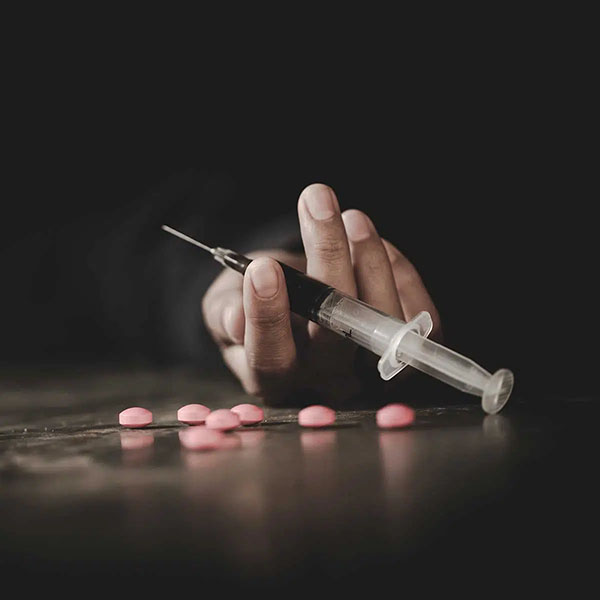Death Caused by Unlawful Distribution of Drugs
Death Caused by Unlawful Distribution of Drugs is a Capital Offense and only has two possible sentences: Life or Death.
Under Florida Statute 782.04(1)(a)(3), the crime of Death Caused by Unlawful Distribution of Drugs is committed when an adult unlawfully distributes an enumerated controlled substance that proximately causes another person's death.
Importantly, the crime of Death Caused by Unlawful Distribution of Drugs does not require proof of an intent to kill, proof the defendant had knowledge a person overdosed, or was present when the drug overdose occurred. [1]
Enumerated Controlled Substance

- Any Schedule I Controlled Substance as defined by Florida Statute 893.03(1).
- Controlled Substance Analog as defined by Florida Statute 893.0356.
- Alfentanil
- Carfentanil
- Cocaine
- Fentanyl
- Methadone
- Methamphetamine
- Opium
- Sufentanil
Penalties for Death Caused by Unlawful Distribution of Drugs
The crime of Death Caused by Unlawful Distribution of Drugs is a Capital Offense in Florida and only has two possible sentences:
- Death, or
- Life without the possibility of parole.
Prosecutorial Waiver of the Death Penalty
The State has the option to waive the death penalty as a sentencing option and elect to seek just Life in prison.
In those cases in which they waive the death penalty as a sentencing option, a person convicted of Death Caused by Unlawful Distribution of Drugs will be sentenced to life in prison without any possibility of parole upon conviction.
Penalty Phase Proceedings
If the State does not waive the imposition of the death penalty and a defendant is convicted of Death Caused by Unlawful Distribution of Drugs, the court will then conduct a separate sentencing proceeding to determine whether the defendant should be sentenced to death or life imprisonment. This separate proceeding is known as the Penalty Phase.
Defenses to Death Caused by Unlawful Distribution of Drugs
In addition to the pretrial defenses and trial defenses that can be raised in any criminal case, specific defenses to the crime of Death Caused by Unlawful Distribution of Drugs are:
Causation
The State must prove the unlawfully distributed controlled substance was the primary cause of death, and without it, the death would not have happened.
Consequently, it is a defense to the crime of Death Caused by Unlawful Distribution of Drugs if it can be show the death could have occurred regardless of the controlled substance having been given to the deceased.
A typical situation occurs where a deceased ingested more than one controlled substance and the other controlled substance could have caused the person's death.
Excusable Homicide
The killing of a human being is excusable, and therefore lawful, under any one of the following three circumstances:
- When the killing is committed by accident and misfortune in doing any lawful act by lawful means with usual ordinary caution and without any unlawful intent, or
- When the killing occurs by accident and misfortune in the heat of passion, upon any sudden and sufficient provocation, or
- When the killing is committed by accident and misfortune resulting from a sudden combat, if a dangerous weapon is not used and the killing is not done in a cruel or unusual manner.
Justifiable Homicide
The killing of a human being is justifiable homicide and lawful if done while resisting an attempt by someone to kill you or to commit a felony against you.
Lawful Prescription
While rarely prosecuted, there have been cases where pharmacists, doctors, or assistants are prosecuted for prescribing controlled substances to people who did not actually have a medically justified need for a controlled substance under the theory that such a prescription is therefore unlawful.
In such a case, it is a defense to the crime of Death Caused by Unlawful Distribution of Drugs if the controlled substances were lawfully sold, manufactured, or delivered to the decedent for a medically supported purpose.
Contact Criminal Defense Lawyer Richard Hornsby
If you have been arrested or charged with the crime of Death Caused by Unlawful Distribution of Drugs in Central Florida or the greater Orlando area, please contact Criminal Defense Lawyer Richard Hornsby today.
The initial consultation is free and I am always available to advise you on the proper course of action that can be taken.